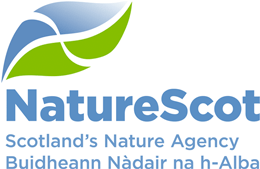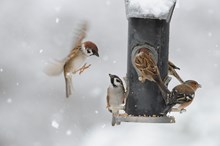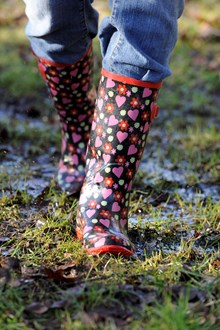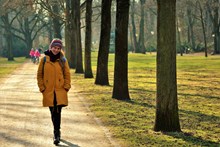29 December, 2020
Scots want to do more for wildlife: 10 easy ways to help
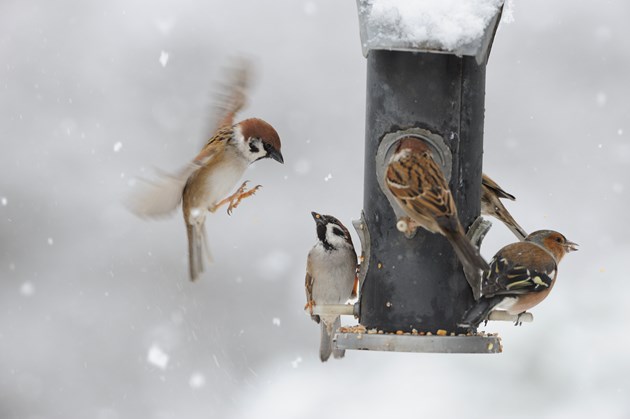
Visits to Scotland’s outdoors increased hugely this year and with so many Scots enjoying the benefits of nature, many of us are keen to continue these habits and more.
NatureScot’s research into our relationship with the outdoors during the pandemic found 50% of people want to do more to help local wildlife in 2021. Winter can be a great season to continue these good intentions and the nature agency has launched its winter Make Space for Nature campaign, encouraging people to take part in simple, fun activities to help the planet thrive.
NatureScot Chief Executive Francesca Osowska said: “Nature is at the heart of a green recovery from this crisis, and it’s encouraging to see such an appetite and desire to help nature on our doorstep.
“Our winter campaign aims to help everyone Make Space for Nature in their lives with simple tips and ideas, such as what to feed birds, how to get involved with nature surveys, and what we can all do to help our local wildlife. Doing small things really can make a big difference. Biodiversity and climate change are inextricably linked - in appreciating the natural world, we all have the power to help wildlife, ourselves and help tackle climate change.”
Top tips:
- Recycle your scraps – bruised or overly-soft fruit can be left out for badgers, foxes and birds. Cut fruit in half and leave on grass or spike on a tree branch. If cats or dogs are nearby, avoid grapes/dried fruit as this can cause them harm.
- Be a lazy gardener - leaving some areas overgrown or filled with leaves and twigs gives insects, frogs, toads and small animals a quiet and cosy place to hide during the colder months. Leave your borders/herbaceous plants intact with seed heads - many insects overwinter in their hollow stems.
- Enjoy nature on your doorstep - many of us discovered local walks, paths and parks during lockdown. There's plenty of wildlife to spot, particularly in urban parks and local paths - from ducks to deer. If feeding ducks, avoid bread and instead try sweetcorn, porridge oats, defrosted frozen peas and bird seed.
- Water, water everywhere - garden ponds can be a great water source but a prolonged freeze can mean problems for fish and hibernating frogs and newts. Gently crack the ice with a stick to make a hole, or float a ball in the water to help stop it freezing. A pond needn't be a large outlay, even using an old washing up bowl of water or a deep saucer of water on a windowsill can help.
- Help your feathered friends - erect bird houses and feeders, clean out existing ones and keep feeders regularly topped up. Other animals and insects also use the houses for shelter. If possible try to create a regular feeding schedule, and remember to provide water too. To attract a range of garden birds try putting out black sunflower seeds, sunflower hearts, quality peanuts, nyjer seed and/or high-energy seed mixes.
- Keep a lookout – contribute to nature surveys by submitting sightings of birds, animals and plants, or report invasive non-native species. It's easy and fun - plus many can be done via your smart phone.
- Volunteer time for nature - plenty of organisations would love your help but much volunteering is suspended unless within current Covid restrictions. Search for current opportunities or consider what you could do once restrictions ease.
- Know it's good for you - if working from home, take time out each day for a walk, bike ride or even just a mindful minute. You won't regret it. Healthy people need healthy nature. By protecting nature, nature protects us.
- Learn outdoors - most of us want our kids to spend more time outdoors. Try a nature hunt, spot the frost patterns on leaves and spider webs, make snow angels, download plant or bird ID apps or simply notice the seasonal changes.
- Keep it going - following our tips can really help nature, both now and in the future. As well as making space for nature in your home and life, you can also help fight climate change, helping to ensure a healthier and greener Scotland.
For more seasonally relevant ways to help nature go to https://www.nature.scot/make-space-nature-winter
Contact information
- Name
- NatureScot Media
- Telephone
- 0131 316 2655
- media@nature.scot
Notes to editors
Read the lockdown survey results:
- Phase 1 July 2020 https://www.nature.scot/enjoying-outdoors-monitoring-impact-coronavirus-and-social-distancing-latest-survey-results-october
- Phase 2 October 2020 https://www.nature.scot/naturescot-research-report-1252-monitoring-impact-coronavirus-and-social-distancing
Photographs:
- Garden birds on feeder by Lorne Gill, NatureScot
- Wellies walk by Lorne Gill, NatureScot
- Walk in park by Liblicas from Piaxabay
NatureScot is Scotland's nature agency. We work to enhance our natural environment in Scotland and inspire everyone to care more about it. Our priority is a nature-rich future for Scotland and an effective response to the climate emergency. For more information, visit our website at www.nature.scot or follow us on X at https://x.com/NatureScot
’S e NatureScot buidheann nàdair na h-Alba. Bidh sinn a’ neartachadh àrainneachd na h-Alba agus a’ brosnachadh dhaoine gu barrachd suim a chur ann an nàdar. Tha e mar phrìomhachas againn gum bi nàdar na h-Alba beairteach agus gun dèilig sinn gu h-èifeachdach le èiginn na gnàth-shìde. Tha an tuilleadh fiosrachaidh aig www.nature.scot no air X aig https://x.com/NatureScot
